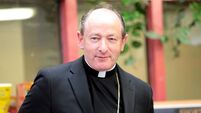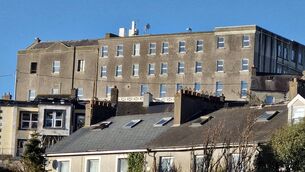Fr Liam Power: The survey for primary schools

Young school boy with his hands clasped either clapping or praying in the classroom
The Department of Education and Youth has launched a survey to assess demand for different types of primary schools. Its aim is to expand parental choice in education. Parents, principals and school staff, along with Boards of Management, have been asked to participate in the survey. It can be accessed and completed online.
The Department claims it is the biggest survey of its kind and it will give “a comprehensive, nationwide picture of parental preferences….the findings will inform future school planning and support more diverse school provision that reflects the values and needs of modern Ireland".
The survey involves the following questions: Would you prefer your primary school to be a co-educational school or a single-sex school? Would you prefer your primary school to operate under a denominational (religious) patron or to operate under a multi-denominational (non-religious) patron? And would you prefer your primary school to provide education primarily through the English language or through the Irish language?
I fully support this survey of stakeholders in the primary school system. Archbishop Eamon Martin encourages all those eligible to participate in the survey.
Hopefully, the results of the survey will convince the Department that there is support for the denominational educational system. But results also should empower the Department to engage in a process of divestment in consultation with patrons to accommodate children of atheistic parents.
The Department highlighted the fact that 90per cent of primary schools are denominational under the patronage of the Catholic Church with a Catholic ethos. The Catholic hierarchy has repeatedly stated that they are prepared to divest Catholic schools, thus offering a wider range of educational opportunities to children and parents who are non-religious.
Archbishop Eamon Martin said that the Catholic Church does not wish to have a monopoly on education. However, the divestment process has proved to be challenging as the majority of parents in most areas has not been supportive of change.
The urgent need for divestment is frequently highlighted. A parent recently complained about the fact that she has no choice but to send her son to Catholic school, as there is no non-denominational school in her area. She said that “her heart breaks to consider the possibility that my son may be one of a handful of children relegated to the back of the room to occupy themselves while the rest of the class is preparing for the sacraments…”
She concludes that public education should be secular as a matter of principle; there is no human right to religious instruction within the education system.
In a somewhat similar vein, General Secretary of the Education and Training Board in Ireland, Paddy Lavelle, argues for a switch to a multi-denominational primary education model. He claims that this would not erase the impact of faith on students of religious families. "For families who are Catholic, there is still the option for children to make their First Holy Communion or their Confirmation – the only difference is that preparation for the sacraments happens outside of the regular school day.”
However, I believe that there must be a diversity of patronage in the primary school system. Article 42 of Bunreacht na hEireann guarantees the right of parents to be the primary educators of their children. This right is also recognised in international human rights law. It guarantees parents the right to choose the education system for their children, schools that align with their values. Therefore, it is equally sectarian to claim, as Paddy Lavelle has done, that there should only be multidenominational schools where the ethos is fundamentally secular or atheist. In effect, this is denying Christian parents the right to a pedagogy for their children based on Christian values.
I believe that a faith-based education can be highly valuable for young people.
Pope Leo recently issued an Apostolic Letter (Drawing New Maps of Hope), in which he articulated his views on Catholic education. Leo promotes a holistic vision of education which fully embraces the child, spiritually, intellectually, emotionally, socially and physically. Forming the whole person means avoiding compartmentalisation. He adds that when faith is true, it is not an added subject but “a breath that oxygenates every other subject”.
Viewed positively, this implies that the Catholic vision opposes what the pope calls a purely mercantilist approach that measures education in terms of practical utility…in other words teaching skills needed for the work force in later life. Education must also be "an apprenticeship in virtue".
The Christian pedagogy, he teaches, must also foster the interior life through silence, listening and prayer. Such a pedagogy challenges the teacher to engage with pupils in a human way using joy, love and empathy to guide them.
The ultimate goal of Catholic education is to help pupils discover meaning in life, to realise their dignity, and their responsibility towards others. The Catholic school is fundamentally committed to inclusivity but also to respecting the diversity of faith and culture in the school community. Realising this in practice is one of the greatest challenges today.
Let’s hope there is a high level of engagement with the survey and that an educational system reflective of the rapid cultural change in Ireland will evolve.






